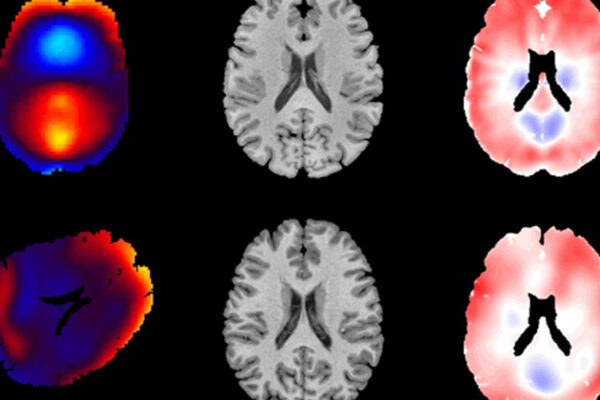In research published in the ASME Journal of Biomechanical Engineering, Ruth Okamoto, a teaching professor, and Philip V. Bayly, the Lee Hunter Distinguished Professor, present new data about what skull motions lead to traumatic brain injury. Both are part of the Department of Mechanical Engineering & Materials Science at the McKelvey School of Engineering at Washington University in St. Louis.
“In this experiment, we’re doing a safe test — gently vibrating your head back and forth like a bowl of gelatin — to gather information about how stiff the brain is and how it moves so we can make better computer models,” Okamoto said.

During the experiment, volunteers had their skulls vibrated either from the back of the head, as in a “yes” nodding motion, or from the right side of the head, as in a “no” neck rotation. The research team imaged the waves produced at different vibration frequencies and determined the kinetic energy (KE), how much energy was transferred to the head, and the strain energy (SE), the energy of brain deformation.
Okamoto and her co-authors found that the ratio SE/KE was a revealing index for how vulnerable the brain is to skull motion. The ratio indicated a dramatic difference in brain deformation in response to lateral skull motion (“no” rotation) compared to occipital excitation (“yes” nodding). When the head was shaken “no,” the SE/KE ratio was approximately four times larger compared to when the head was nodded “yes,” suggesting lateral or side impacts are more likely to cause brain injury than occipital or frontal impacts of the same severity.
Read more on the McKelvey School of Engineering website.


